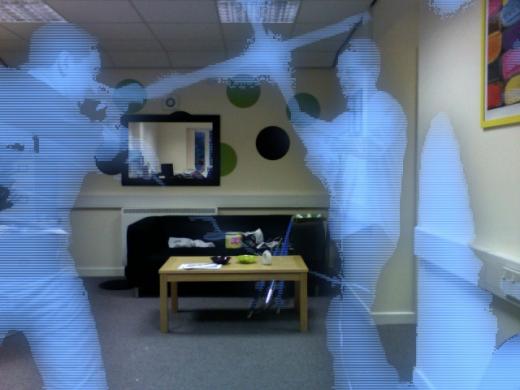Stories about what happens when you name names. When you turn someone over to the authorities, it can set into motion lots of huge, unintended consequences. A reporter turns over an interviewee to the FBI. A group of teachers turn in their principal. A director turns in his Communist colleagues to the United States Congress.
-
Download Control-click (or right-click) Tap and hold to download
- Subscribe on Spotify Subscribe in Apple Podcasts Subscribe
- Transcript

Prologue
Host Ira Glass explains that when you name names, when you whistleblow, when you tell on someone, you often do it anonymously. We hear from one anonymous squealer, who was done wrong by her doctor—he messed up a procedure and then refused to fix it. She decided to get even with him by turning him in to the IRS. (6 minutes)
Act One
How Britain Nearly Saved America
Reporter Jon Ronson tells the story of how, in the immediate wake of September 11, he became convinced that a man he'd done a story on was responsible for the Anthrax attacks in America. So he did something he'd never done before, he ratted out his source to the FBI. He then felt the guilt of accusing someone who turns out not to be guilty. Jon Ronson is the author of the book, Them: Adventures with Extremists. (18 minutes)
Act Two
One Crucible Leads To Another
We hear excerpts from two autobiographies which each describe the same moment, but in very different ways. Elia Kazan and Arthur Miller agree that they met with each other in 1952, around the time Kazan named the names of his old friends to the House Committee on Un-American Activities. But they don't agree on what the conversation was like. Kazan describes it in his memoir, A Life, as cordial, supportive. Miller describes it in his Timebends as quietly calamitous. And after this moment, each man went on to defend his position in later work—Miller with The Crucible, about the dangers of bandwagon accusation; and Kazan with On The Waterfront, containing perhaps the single greatest testimony to squealing in the history of film. (11 minutes)
Act Three
Beating The Erasers
Susan Drury tells the story of what happens when one of the most respected men in town gets accused of sexual harassment by one of the most trusted women in town. For a lot of the townspeople it was a difficult decision, but they chose to believe him over her. And some of them didn't change their minds, even when the man was later revealed to be a murderer. (21 minutes)



